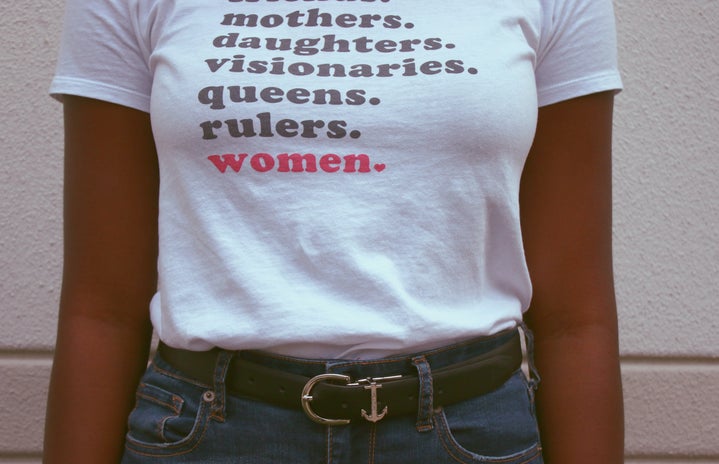In the third and fourth waves of feminism, women working in corporate jobs epitomised feminist values of strength, financial independence and ambition. Essentially reaching heights that were previously unthinkable. However, as we celebrate women making waves through the corporate world and fulfilling our ambitions, we pay a hefty price, and this is especially so for working mothers.
Working mothers, in and of itself as a term, falls into patriarchal stereotypes. No working man who has children is called a “Working Father”. So why is the term mother constantly attached to working women who have children? On a linguistic level, “working” here is an adjective that describes the noun “mother”, indicating that the core identity of these women is still that they are mothers, and that is their primary responsibility. Subsequently the term indicates that their jobs are mere side hustles.
Working mothers are expected to fulfill their job expectations at the same standards as their male counterparts, while also taking on the full responsibilities of managing the household. They start their day at 5am getting themselves ready, making breakfast, waking the kids and sending them to school. After which, they work their 9 to 5 and come home, only to prepare dinner and do the house chores. Especially during the pandemic where the lines between work and private lives were blurred, the workload that working mothers carried was even heavier. This is because their work responsibilities seep into time outside of office hours (which they are not compensated for). Yet, when these exhausted working mothers employ helpers or send their children to childcare to ease their burdens a little, they are labelled as selfish, incompetent and negelectful mothers. In a video by Heart Touching Films in 2021, where the Youtube video is titled “Who Knows Kids Better? Mum vs Maids”, the comments are filled with such sentiments.
The 9-5 work shift we are all so familiar with is a construct created during the Industrialisation boom in the late 1800s to 1900s. As production ramped up and capitalism became the dominant economic strategy used by most societies. Long work hours became a requirement (or at least believed to be a requirement) to churn out more money to keep the economy going, especially in the eras immediately following the world wars. However, we must remember that back then, while the men were away at work, very often, the women were at home spending all day keeping the affairs of the household under control. It was designed specifically for the heterosexual nucelar household, where it is assumed that the man would be the breadwinner and the woman the housewife. With such clear segregation of roles, both areas of the income and the household were covered and daily life in a family could run smoothly without anyone feeling overburdened. Women had the entire day to do household chores and to take care of their children, which was all they had to do. All their time and energy was channeled into that and they need not diversify their emotional and physical reserves into anything else. Women were prevented from pursuing anything else, but more importantly, it worked.
However, times have changed and women are now no longer constricted to the household and are free to enter the corporate world. While on paper, such change seems like a progressive movement towards gender equality, in reality, because values and ideologies have yet to change, this change isn’t holistic. This is why even though women now hold the same positions as men in the corporate world, they are still required to solely fulfill the obligations of maintaining the household. Now that they too work 9-5, someone else needs to fill the gap they have left. This is why many employ helpers. However, this is just a temporary solution that only creates more conflicts as seen in the Heart Touching Films Youtube video.
Instead, as a whole, the corporate world and society needs to change. Change on paper is just perfunctory, a poorly made effort to silence the feminist movement, a bandaid on a gashing wound. For real, deep change that will result in gender equality, work schedules and environments should be changed. For example, parental leave should apply to both fathers and mothers. Child leave should also be provided for both parents. Shorter work hours and weeks will also help in the management of workload and stress. On a societal level, society needs to shift away from traditional patriarchal rules of gender roles and instead acknowledge that as fathers, men have an equal share to do as parents.They should not be wholly absent from their child’s life. Household chores apply to them as well, given that it is a place they also live in. Responsibilities shouldn’t be determined by gender, but instead by what we do (ie: if you throw dirty clothes in the laundry, doing the laundry should also be your job).
Finally, women should also be respected as people – people with dreams and ambitions. Their identities should not be boxed into stereotypical molds and roles that were created and are enforced by the patriarchy. Women should be recognised as mothers, but also more than just mothers, they are also managers, cleaners, hawker center aunties; people who love to draw or rock climb or volunteer; people with holistic personalities and multiple facets. Constantly imprisoned into roles that merely serve others, mothers should be given the chance to also serve themselves, to gain independence and freedom to do what they like to do, while also gaining fulfillment in being a mother.
We can always start from the small things, like changing the terms we use.


